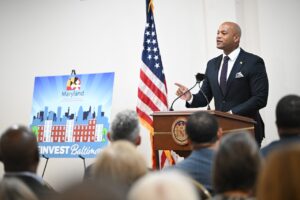Differences in wealth and differences in income are the wrong ways to measure economic inequality, and going by either of them “dramatically overstates” the degree of inequality in the United States, a working paper argues.
The right measure of economic inequality is differences in spending power, says the paper, “U.S. Inequality and Fiscal Progressivity: An Intragenerational Accounting,” which is by the economist Alan Auerbach of the University of California, Berkeley, the economist Laurence Kotlikoff of Boston University and the software developer Darryl Koehler of Economic Security Planning.
Spending power — the amount of goods and services that a person can buy — is what really matters to people because it captures the ability to satisfy their wants and needs, Auerbach, an expert on the economics of public finance, told me. He asked me to imagine bars of gold encased in a radioactive block. If wealth can’t be used, it’s of no value. The same goes for income, he said.
Study after study has shown rising inequality of income and wealth in the United States. An article by the economists Thomas Piketty, Emmanuel Saez and Gabriel Zucman published in 2017 found that the average real income of the top 0.1 percent of the population grew by 298 percent between 1984 and 2014, while the average real income of the bottom half of the population grew just 21 percent.
But spending power gives a different picture. Still bad, but not as bad. The richest 1 percent of 40- to 49-year-olds in the United States own 29.1 percent of their age cohort’s net wealth, but account for only 11.8 percent of their group’s remaining lifetime spending power, the new paper says. The poorest fifth of the 40-somethings own just 0.4 percent of the group’s net wealth but have 6.6 percent of the remaining lifetime spending power, the paper says.
The authors have revised the paper repeatedly since its first draft in 2016, incorporating new data and responding to requests from journal editors. They released the latest version on July 5. The paper has been accepted for publication by the Journal of Political Economy.
Difference in wealth overstates inequality because it fails to capture two of the main enablers of spending power, namely earnings from work and government benefits, the paper says. Someone who has no money in the bank can still have a relatively decent lifestyle based on salary and various transfer payments, including Social Security.
Taking a snapshot of the population in any given year, as some studies do, will also tend to overstate the degree of inequality in society, Auerbach told me. For example, 60-year-olds tend to have more income and wealth than 20-year-olds. But that’s not really evidence of societal inequality: You want to compare people at the same stage in life.
The authors did not tilt their methodology to lessen the appearance of inequality. For example, they took into account that poorer people tend to die younger, so they receive Social Security benefits for fewer years than do wealthier people. This means that the Social Security system is less progressive than it appears if you look only at tax and benefit rates.
The authors also focused on spending power, not spending. Inequality as measured by differences in actual spending would have been smaller because rich people don’t spend everything they’re capable of spending, while poor people do.
You might object that there is something you can do with your wealth besides spend it, and that’s bequeath it to children or charities. The authors took that into account: Their measure of spending power includes the money people leave behind when they die.
To arrive at their results the authors had to figure in complex interactions between hundreds of federal and state government benefit programs, each with its own phase-outs based on wealth and income. That was carried out by software from Economic Security Planning called MaxiFi Planner. The software is available as a commercial product for personal-finance planning but has been built out to serve as a general-purpose tool for economic research. Funders of that effort included the Federal Reserve Bank of Atlanta, the Goodman Institute and the Alfred P. Sloan Foundation.
The methodology used by Auerbach, Kotlikoff and Koehler has been criticized by the Center on Budget and Policy Priorities as “complex, confusing and uninformative.” When the methodology is used to compare today’s population with unborn generations — so-called intergenerational accounting — it requires forecasts to be made out to infinity, which the center correctly notes is “very iffy.”
This paper compares people of the same ages — so-called intragenerational accounting — so it doesn’t require such long-run forecasting. In any case, Auerbach told me, “our response is, if you’re uncertain about the future, fine, that doesn’t mean you should ignore it.”
Number of the Week
5.37 million
The seasonally adjusted annual rate of sales of existing homes in the United States in June, down from an annual pace of 5.41 million in May, according to the median of estimates by economists surveyed by FactSet. There’s still a housing shortage but demand is softening because of rising mortgage rates. Action Economics of Boulder, Colo., estimates that the median sales price rose 10.7 percent in June from a year earlier, versus a record-high annual increase of 25.2 percent in May 2021. The National Association of Realtors is set to release the official data on Wednesday.
Quote of the Day
“Learn from me, if not by my precepts, at least by my example, how dangerous is the acquirement of knowledge ….”
— Mary Shelley, “Frankenstein” (1818)
Have feedback? Send a note to coy-newsletter@nytimes.com.
Source: NY Times











